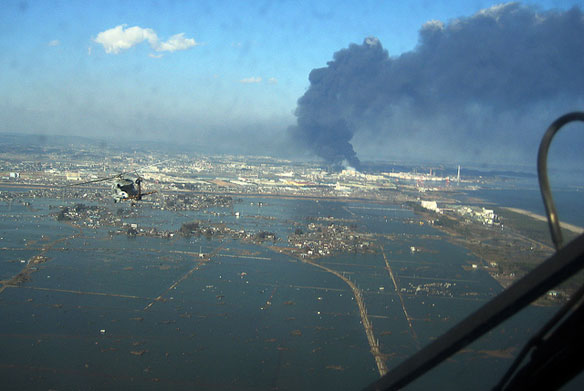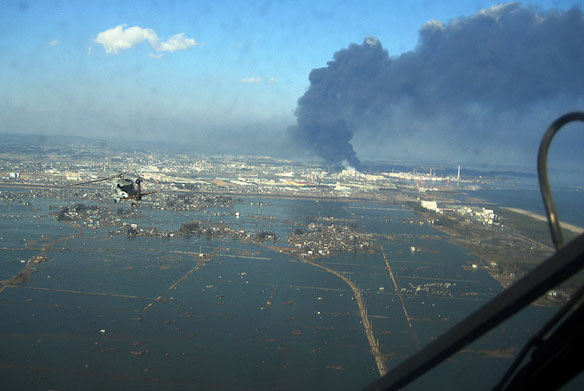
Aerial of Sendai, Japan, following earthquake, March 12, 2011. An SH-60B helicopter assigned to the Chargers of Helicopter Antisubmarine Squadron (HS) 14 from Naval Air Facility Atsugi flies over the city of Sendai to deliver more than 1,500 pounds of food to survivors of an 8.9 magnitude earthquake and a tsunami. The citizens of Ebina City, Japan, donated the food, and HS-14 is supporting earthquake and tsunami relief operations in Japan as directed. Photo source: U.S. Navy Imagery
Excerpts;
Global positioning systems (GPS) could provide faster tsunami alerts than current warning set-ups, German researchers said, citing data collected in last year’s deadly Japan earthquake.
If an earthquake occurs near the coast, it can take just 20-30 minutes before a resulting tsunami hits land, but GPS measurements taken almost while the earthquake is still happening would enable a faster assessment of its scale, the researchers said.
The findings were presented at a week-long conference of the European Geosciences Union in Vienna…









